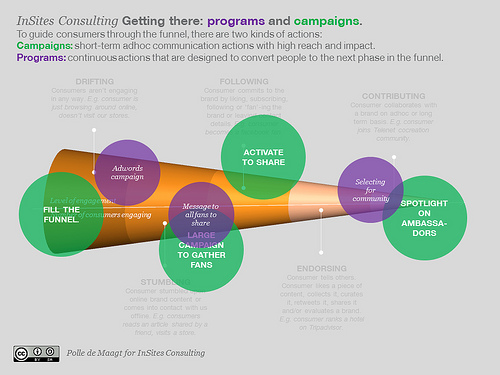
Groupon (and it’s clones) made pricing sexy again. They used digital technology to leverage ease of use, smart conversion techniques and created stuff worth sharing. I discussed earlier how Groupon’s smart promotions could be designed to be conversation-worthy and how pricing can facilitate radical change.
But pricing in the conversations-era has some more interesting effects. Pricing is all about managing expectations. About the (perceived) value people get in exchange for their money. This managed expectation of value is a strong influencer of conversations (see the model on the right). As Richard Mulder (Anomaly) said “If it’s good, no one will ask what it cost. If it’s bad, it’s too expensive“.
How low prices increase negative feedback
A common-sense approach to pricing and managing expectations would be that lower pricing would make it easier to exceed expectations. E.g. when I pay 20 euros for a Easyjet ticket compared to, say, 100 euros for a Lufthansa ticket, it would be easier for Easyjet to exceed expectations and make feel getting a great value deal.
However, pricing is way more complicated, especially, when used in this conversation era.
Consider the following thought: A low price INCREASES negative feedback. Because it exposes the work to individuals that might not be raving fans.
A pricing premium makes sure that not all people can buy a product. The actual buyers will be the real brand/product believers who are more likely to talk about the product in positive and passionate ways. It will turn your pricing policy into an advocay and influential strategy.
Pricing is sexy again. Be sure to design your pricing to be worth sharing.
